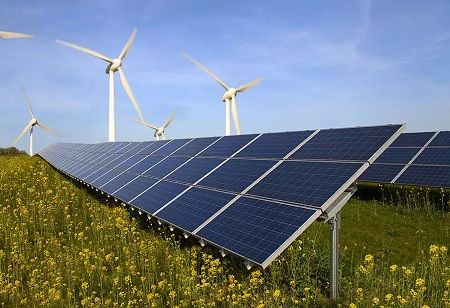
India-GCC Trade Reaches $162 Billion, Strengthening Ties in Energy, Defence, and Technology

 India’s trade with the Gulf Cooperation Council (GCC) reached a significant milestone, hitting USD 162 billion last year, contributing 15% to India’s total trade. This was highlighted by Aseem R Mahajan, Joint Secretary – Gulf, Ministry of External Affairs, during the ‘India MENA Business Dialogue: Bridging Economics, Fostering Growth’ event organized by FICCI. Mahajan emphasized the growing multi-faceted partnership between India and the Gulf, encompassing critical sectors such as energy, defense, security, and health.
India’s trade with the Gulf Cooperation Council (GCC) reached a significant milestone, hitting USD 162 billion last year, contributing 15% to India’s total trade. This was highlighted by Aseem R Mahajan, Joint Secretary – Gulf, Ministry of External Affairs, during the ‘India MENA Business Dialogue: Bridging Economics, Fostering Growth’ event organized by FICCI. Mahajan emphasized the growing multi-faceted partnership between India and the Gulf, encompassing critical sectors such as energy, defense, security, and health.
Mahajan noted that while overall trade figures may experience fluctuations, India’s exports to the GCC have consistently grown, underscoring the strength of the economic ties between the regions. “India exports various food processing, jewelry, synthetic fibers and yarns, textiles, pharmaceuticals, and engineering goods, chemical products. Many of these areas are areas of huge potential”, he stated. The India-UAE Comprehensive Economic Partnership Agreement (CEPA), signed in 2022, was particularly highlighted for its role in significantly boosting trade relations between India and the UAE.
Financial connectivity has also seen significant advancements, with key initiatives like the ongoing integration of India’s Unified Payments Interface (UPI) system with the UAE’s JAYWAN card and RuPay. Mahajan pointed to the operational local currency settlement system in Dirham and UPI as a successful model that other countries are now considering adopting. He also underscored emerging opportunities in education and connectivity, particularly through the India-Middle East-Europe Economic Corridor, which presents significant potential for further strengthening ties.
Investment opportunities from Sovereign Wealth Funds in Saudi Arabia, UAE, Qatar, and Kuwait were highlighted as areas of strong interest. Mahajan indicated that sectors like infrastructure, hydrocarbons, renewable energy, and technology are attracting considerable attention. "We are looking at many diverse areas. Infrastructure, hydrocarbons, renewable energy, food processing, technology, health, hospitality, tourism many of these areas have potential where industry can build fruitful joint ventures and partnerships", he added.
Indian Ambassador to the UAE, Sunjay Sudhir, emphasized the importance of technology and innovation within the GCC, especially in emerging sectors such as artificial intelligence (AI), healthcare, and space technology. He noted that the GCC is the largest trading regional block of India, contributing to about one-sixth of India's total trade. "The future holds immense potential for deeper cooperation in these sectors", Sudhir remarked.
Amit Narang, Indian Ambassador to Oman, discussed the significant growth in bilateral trade between India and Oman, noting that direct shipping routes could further enhance trade. He also highlighted that discussions for a bilateral CEPA with Oman are at an advanced stage, which could further solidify trade and investment ties between the two nations.
Dr. Suhel Ajaz Khan, Indian Ambassador to Saudi Arabia, focused on the energy-driven trade relationship between India and the GCC. He emphasized the economic transformation underway in Saudi Arabia as part of Vision 2030, which is expected to create opportunities in various sectors, including construction, mining, technology, and renewable energy.
Adeeb Ahamed, Chairman of FICCI Middle East Council, reiterated the importance of pursuing a Free Trade Agreement (FTA) between India and the GCC, noting its potential to significantly enhance economic ties. He also stressed the strategic importance of initiatives like the India-Middle East-Europe Economic Corridor for boosting connectivity and cooperation.
The discussions at the event highlighted the growing economic interdependence between India and the GCC, with both regions poised to deepen their collaboration across multiple sectors, driven by shared goals of innovation, economic growth, and sustainable development.